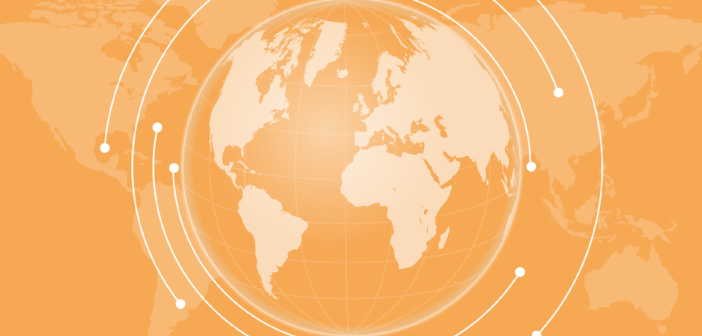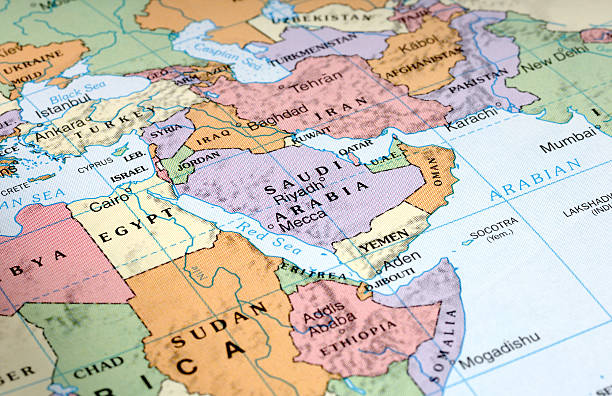
Click here for the full report
Russia’s Invasion of Ukraine: The Refugees
Ali Tuygan
During the years following the collapse of the Soviet Union, Western countries failed to help Moscow chart a new path. Some former members of the Warsaw Pact, which had remained forcibly under communist regimes since the end of the Second World War, others under Soviet occupation and yearning for independence, crossed over to the “other side” in exercising what was their indisputable right under international law. There were no written commitments of the kind Russia is demanding now regarding NATO expansion, but one may say in all fairness that at least an understanding was given. Ukraine’s leaders should have been in a better position than those in the West to know that their joining NATO was a real red line for Moscow. They could have waited longer to fulfill their aspiration to join the EU, for the post-Cold War European security architecture to evolve, Russia to digest the loss of an empire and waves of NATO expansion.
None of this justifies the premeditated Russian onslaught against Ukraine leading to loss of life, suffering, and destruction. Regardless, President Putin still insists that Russians and Ukrainians are one people. Not anymore.
Europe is now confronted with a huge wave of Ukrainian refugees. A million and a half have already crossed the border to neighboring countries in the west. The EU has opened its doors to them. The media is full of their stories reflecting their anguish, and tears for the loved ones they left behind to fight Russian aggression. Some walked miles to cross the border, some had no food or water on their journey to safety. Some carried their pets with them. But wherever Ukrainian refugees go, they are warmly welcomed with food, warm drinks, toys for the kids, and signs in the hands of those who are ready to offer them a bed and more at their home in an outpour of generosity. After all, they belong to the same race, the same faith, all the refugees are neatly dressed. They have little trouble communicating with the locals. Most of them are women or children. And above all, they are escaping Russian aggression.
I only hope that the agreement to open humanitarian corridors for civilians agreed at Brest between the Russian and Ukrainian delegations would work.
The foregoing inevitably reminds me of the plight of refugees from other troubled regions of the world. The following are some of the headlines used last year in the Western media:
- “Iraqi migrants say they face beatings on both sides of the Belarusian border”,
- “Belarus: Iraqi migrants caught in border tensions fly home”,
- “Would-be Syrian refugees flown back from Belarus despite visas”,
- “Drowning of 27 migrants in English Channel is worst disaster on record: IOM”,
- “Nearly 1,000 migrants have drowned in the Mediterranean Sea in 2021: UN”,
- “UN Agency: 75 Migrants Drown in Mediterranean off Libya”,
- “Migrants cope with freezing weather, violence on Hungary border”,
- “Poland blocks hundreds of migrants at Belarus border”,
- “In Lithuania, anti-migrant rhetoric hardens as Europe awaits Brussels’ next move”,
- “EU migrant crisis: Austria can deport asylum seekers, court says”,
- “Slovakia vows to refuse entry to Muslim migrants”,
- “Slovenian PM rejects humanitarian corridors, sparks polemics”,
- “EU, fearful of refugee crisis, delays response on Afghan asylum.”
All these headlines were about migrants from the Middle East.
Those migrants did not belong to the same race, few if any belonged to the same faith, and they were not always as well-dressed as the Ukrainians. Most of them were men. Most of them had reached European borders either on foot or in the hands of human traffickers. They did not carry roller luggage. As they tried to cross borders, they were looked down on as an unruly lot. The biggest difference was, they were not escaping Russian aggression.
They were escaping the destruction and suffering inflicted by Western military interventions in their country or region, like the invasion of Iraq, the two decades of war in Afghanistan, regime change projects in Libya, Syria, and the war in Yemen. The declared purpose of these interventions was always “bringing democracy”. They only brought devastation. These countries are now in a worse situation than before the Western interventions. And Turkey is paying for its taking a leading role in the regime change project in Syria.
The West is now lecturing Russia on respect for the so-called “rules-based international order, respect for the sovereignty, territorial integrity, and the freedom of choice of countries. No one can argue against any of that. But the Russian aggression against Ukraine should also be a wake-up call for Western democracies. They should seize this tragedy to bury their interventionist past and start proving their peace-making capacity. Only this would give them the “moral authority” to promote democracy. They owe this to the Middle East more than any other place.
According to newspapers, some European countries are now seizing the yachts of the Russian oligarchs. Until recently, the red carpet had been rolled down for them.
Munich Philharmonic has fired conductor Valery Gergiev for failing to condemn the Russian attack on Ukraine. Did he publicly approve of the invasion or just remained silent?
President Zelensky has been asking for a no-fly zone. And this is what an Observer editorial said: “Nato cannot declare war on Russia, which is what a no-fly zone would amount to. This would be a reckless escalation of conflict with a nuclear power.” [i] What if old Soviet fighter jets were to be supplied to Ukraine by Poland? Would they shore up Ukrainian defense or trigger a bigger air campaign by the Russian air force?
On the maps, Russian-controlled regions of Ukraine are now taking the shape of a crescent. If Russian forces were to capture Odesa and thus cut the rest of Ukraine and Moldova off the Black Sea, this crescent will take full shape. Will they then stop or continue moving towards the west? If so, how far? When will President Putin declare “mission accomplished”? When this crescent becomes half-moon or full moon? Nobody knows.
With an unprecedented information war upping the ante, extending from blocked websites, venturous stage managers, changing scripts, and actors at a loss to bloody combats waging in Ukraine, the new Cold War is in full swing. And with 95% of Russia’s amassed firepower now in Ukraine, according to CNN, its immediate victims will be the Ukrainians.
————————————————————————————–
[i] https://www.theguardian.com/commentisfree/2022/mar/06/observer-view-ukraine-western-support









